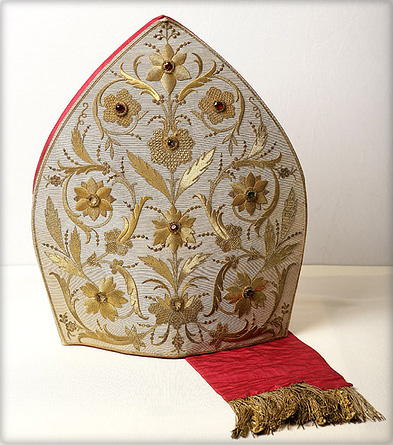Archbishop of Canterbury on women bishops
Friday 3rd February 2012
The Church of England's General Synod, meeting 6th-9th February, will look at the legislative process designed to make it possible for women to be bishops while also making provision for those who, for theological reasons, will not be able to receive their ministry. This will be the present Synod's first opportunity to engage with that process since it was elected 18 months ago.
This will be the present Synod's first opportunity to engage with that process since it was elected 18 months ago.
There will be four separate items of business dealing with different aspects of this complicated process, on the Tuesday, Wednesday and Thursday (see Synod agenda). These include fine-tuning of the draft Measure and consideration of making specific requests to the House of Bishops in relation to the next stage of the process in May. In addition, the Synod will have a presentation and opportunity for questions on the report from a working group on an illustrative draft Code of Practice that would be made once the legislation had been approved. These debates lead towards a possible final debate in July.
Recent statements from the Archbishop of Canterbury on this subject follow.
January 2012
In a joint forward with the Archbishop of York to the Synod paper Draft Bishops and Priests (Consecration and Ordination of Women) Measure: Draft Code of Practice, the Archbishops said:
As bishops, we are very much aware that the Synod faces probably the most significant set of legislative decisions it has had to deal with for some twenty years. For most in the Church of England, what is in view is a deeply positive change, a great gift to the church and its ministry in the twenty-first century; for others, who are no less valued and beloved brothers and sisters in the Body of Christ, there are deep concerns and uncertainties about the future. In these circumstances, we have to discern how best to take that responsibility for each other that is laid upon us by our communion in Christ. Our prayer is that we can help one another forward, refusing to be imprisoned by a sense of burden and anxiety:
Have no anxiety about anything, but in everything with prayer and supplication, with thanksgiving, let your requests be made known to God. And the peace of God which passes all understanding, will keep your hearts and minds in Jesus Christ our Lord.
+ Rowan Cantuar:
+ Sentamu Ebor:
November 2011
As part of his evidence to the Joint Committee on Reform of the House of Lords, the Archbishop of Canterbury proposed ‘fast-tracking’ women bishops to the House of Lords (p.16, Uncorrected Transcript of Oral Evidence).
November 2010
In November 2010 Archbishop Rowan Williams gave a wide-ranging interview to Andrew Peach at BBC West Midlands which included the following extract on the issue of Women in the Episcopate:
Andrew Peach: For some people in the West Midlands, the sort of reason that they would even contemplate that sort of change, and we've spoken to people who have made the change or are thinking about becoming Roman Catholics – one of the big issues facing the Church of England is about women bishops and whether the ordination journey which started some years ago will result in women being ordained bishops, which as I understand it is something you want.
Archbishop of Canterbury: It's something I'd like to see, yes, and it's something which I think a majority of people in the Church of England would be very happy with. It's as you say, part of a journey that we started some time ago, but I also share the concerns of a lot of people who have convictions about the rightness of women bishops, so we have got to be loyal to those people who want to be loyal to us, and make the best provision we can.
AP: To put this question simply, what's wrong with the system of male bishops within the Church that's got you this far, why does it need to change?
ABC: I think those of us who believe that there can be women bishops would say that the whole ordained ministry of the Church is part of the identity of the Church as baptised people, and men and women are baptised, they take on the responsibilities and dignities of being baptised, as the Bible says: having the likeness of Jesus Christ. And if men and women are both baptised then it seems reasonable to think that they can represent the congregation, and represent Christ in the congregation because they're baptised. That's the way the argument has moved, but for a long time I think social attitudes about women held us back, and also a sense that tradition weighed heavily, that it hadn't been done.
Click below on the tag "Women in the Episcopate" for other items on this subject.
